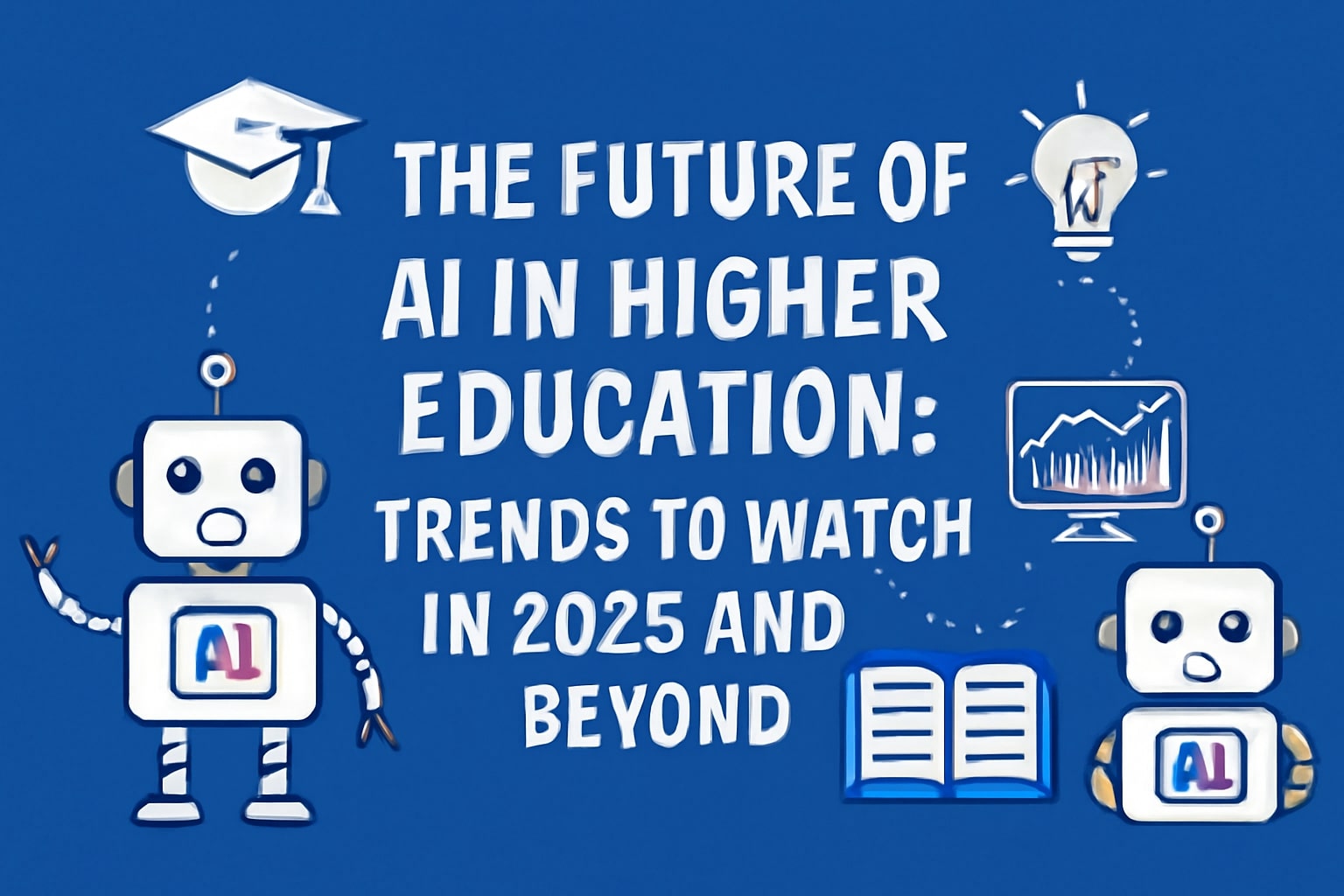Higher education is entering a transformative era. AI in higher education is set to redefine not only how students learn but also the way universities operate. From admissions to alumni engagement, the integration of artificial intelligence will reshape learning pathways, research, and institutional models. Below are the key trends shaping the future of AI in higher education for 2025 and beyond.
1. Hyper-Personalized Learning Pathways
The Trend: Universities are moving beyond one-size-fits-all degrees toward dynamic, AI-powered personalized learning journeys.
How it works: AI analyzes a student’s career goals, prior skills, and learning style to recommend a customized mix of courses, certifications, and experiential projects. This might include classes from multiple departments or even partnerships with other institutions.
Impact: Students graduate with unique, market-ready skill sets that directly align with employer demands, boosting employability and long-term career success.
2. AI-Powered Admissions and Student Success in Higher Education
The Trend: AI creates a more holistic and supportive student lifecycle, from admissions to graduation.
- Admissions: AI can evaluate applications holistically, recognizing talent from diverse, non-traditional backgrounds that standardized tests might overlook.
- Retention: Predictive analytics can flag students at risk of dropping out, enabling advisors to step in early with support programs.
3. The Rise of the AI Research Assistant in Universities
The Trend: Academic research will accelerate thanks to AI-driven insights and tools.
- Literature Review: Summarize thousands of studies to identify gaps and future research opportunities.
- Data Analysis: Run complex simulations and uncover insights in large datasets faster than ever before.
- Grant Writing: AI can draft proposals and streamline formatting, saving researchers valuable time.
4. Credentialing and Lifelong Learning with AI
The Trend: Universities are evolving into lifelong learning hubs, supported by AI.
How it works: AI platforms recommend upskilling opportunities for alumni, track professional growth, and verify micro-credentials with blockchain-secured digital badges. This ensures students stay competitive in the job market long after graduation.
5. Ethical Considerations and Algorithmic Bias
The Trend: Universities must address fairness, bias, and transparency in their AI systems.
The Challenge: From admissions to grading, AI algorithms can unintentionally reproduce biases found in training data. Institutions will need to prioritize explainable AI to ensure accountability and fairness.
6. Preparing Students for an AI-Driven World
The Trend: AI literacy is becoming essential across all academic disciplines.
Impact: Every field will incorporate AI education. Business students will learn AI strategy, ethics majors will analyze AI policy, and journalism students will be trained to detect AI-generated misinformation. By 2025, AI literacy will be a core skill set for all graduates.
The Evolving Role of Professors in Higher Education
Professors will shift from “sage on the stage” to “guide on the side.” Their role will emphasize:
- Facilitating critical debates and discussions AI cannot replicate.
- Providing mentorship, ethical perspective, and emotional support.
- Designing experiential projects that integrate human creativity with AI tools.
Conclusion: AI in Higher Education as a Force for Accessibility
Ultimately, AI in higher education promises a more adaptive, inclusive, and effective system. By making learning pathways flexible and personalized, universities can prepare students not only for their first job but for lifelong success in an AI-driven world. To remain competitive, institutions must embrace these innovations responsibly while upholding academic values.
